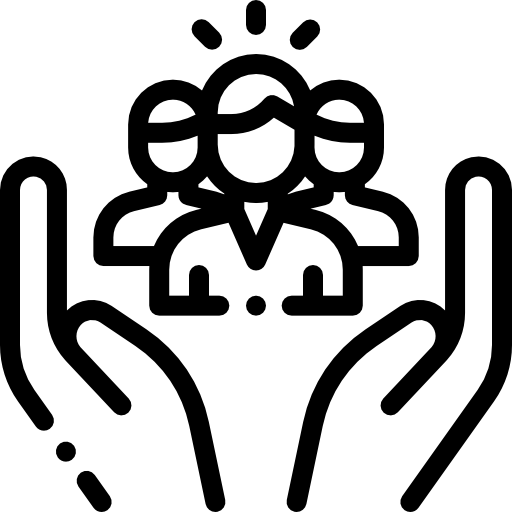Couples Therapy in San Diego
Deeper Connection and Lasting Growth
At Daydream MD, thriving relationships begin with thriving individuals. Our couples therapy in San Diego helps you and your partner move through stuck patterns, strengthen communication, and rediscover connection, with compassionate guidance every step of the way.
Whole-person, integrative approach to relationship health
Therapist-guided, client-led care—tailored to your relationship
San Diego-based healing, designed for transformation
.jpg)
Therapy that meets you where you are, and helps you grow
A place to feel seen, supported, and safe
Whether you’re navigating a significant life transition, struggling to feel heard, or simply seeking deeper intimacy, our couples therapy approach meets you where you are. We offer evidence-informed strategies in a calming, judgment-free environment, so you can explore challenges honestly and grow together.
We support couples who are:
Feeling disconnected or emotionally distant
Working through infidelity or trust issues
Arguing often or avoiding difficult conversations
Facing big decisions like parenting or separation
Simply wanting to grow closer and communicate better
Health Optimization
Adopt sustainable habits for lasting wellness.
Lifestyle Planning
Design a daily routine that supports your well-being.
Personal Growth
Expand self-awareness and create meaningful change.
What makes Daydream MD different?

Whole-person care
We recognize that each partner brings their history, communication style, and nervous system into a relationship. That’s why we integrate mind-body-spirit awareness into our therapy sessions, creating space for insight, healing, and transformation.

Therapist-guided. Client-led.
Our couples therapy is grounded in active collaboration. A licensed member of our care team helps guide your conversations, centering on your goals, pace, and values. You’re in the driver’s seat of your healing journey, together.

Evidence-based meets heart-centered
We draw from a range of therapeutic modalities, including Emotionally Focused Therapy (EFT), the Gottman Method, and somatic-based approaches. But we also make room for what feels most human: empathy, trust, and curiosity.

Unlock Your Potential with Couples Therapy in San Diego
Couples therapy that helps you break through obstacles, gain clarity, and take action toward a stronger partnership.
How couples therapy works at Daydream MD
Every journey starts with a 60-minute intake session. During this time, we’ll get to know both partners, understand your current challenges and goals, and recommend a tailored care plan.
What to expect:
- A calm and welcoming therapy space in San Diego
- A focus on co-created solutions, not blame
- Tools and practices to support communication outside of sessions
- Optional individual sessions to support each partner’s inner work
We also offer integrative add-ons, such as ketamine-assisted therapy or functional medicine support, for couples seeking deeper transformation.
.jpg)
Is couples therapy right for you?
If you’re asking that question, you’re already doing the brave work of showing up for your relationship. Therapy isn’t just for when things are falling apart; it’s for when you’re ready to grow.
Whether you’ve been together for months or decades, couples therapy at Daydream MD can help you:
- Build trust
- Strengthen emotional intimacy
- Navigate conflict with more ease
- Communicate more clearly and kindly
- Create a shared vision for your future
.jpg)
Located in the heart of San Diego
Our serene, light-filled therapy spaces are designed for openness and comfort. We're centrally located in San Diego, with easy access from North Park, Mission Hills, Hillcrest, and surrounding neighborhoods.
All sessions are virtual, but we can provide couples therapy for anyone residing in California, and couples coaching services internationally.
Start your journey together.
Healing doesn’t have to be hard. And you don’t have to do it alone.
Take the first step today:
- Schedule a consultation
- Explore therapy options
- Connect with a care team member

FAQs about Couples Therapy
What is couples therapy?
Couples therapy is a type of psychotherapy designed to help couples improve their relationship. It involves working with a therapist to address issues such as communication problems, conflict resolution, intimacy, and other aspects of their relationship.
How does couples therapy differ from individual therapy?
Couples therapy focuses on the relationship between two people, addressing issues that affect both partners. Individual therapy focuses on personal issues and is tailored to one person’s experiences and needs.
What are the goals of couples therapy?
Improve communication between partners
Resolve conflicts and disagreements
Enhance emotional and physical intimacy
Build trust and mutual respect
Strengthen the relationship and prevent future issues
What are the benefits of couples therapy?
Better communication skills
Increased understanding and empathy
Effective conflict resolution strategies
Enhanced relationship satisfaction
Improved emotional and physical connection
What happens during a couples therapy session?
Sessions typically involve both partners discussing their concerns with the therapist. The therapist may observe interactions, provide feedback, teach communication skills, and facilitate discussions on specific issues. Homework assignments and exercises may also be given to practice outside of sessions.
What techniques are used in couples therapy?
Gottman Method
Imago Relationship Therapy
Cognitive-Behavioral Therapy (CBT)
Relational Life Therapy (RLT)
Narrative Therapy
Systems Theory
Who can benefit from couples therapy?
Couples experiencing issues such as communication problems, frequent arguments, infidelity, sexual difficulties, or other relationship challenges can benefit from couples therapy. It’s also useful for those looking to strengthen their relationship.
How do we know if we need couples therapy?
Consider couples therapy if you’re experiencing recurring conflicts, feeling distant or disconnected, struggling with communication, or facing major life changes that impact your relationship.
How long does couples therapy take?
The duration varies depending on the issues and goals. Some couples may see improvement in a few sessions, while others may require several months of therapy. Sessions typically occur weekly or biweekly.
Does insurance cover couples therapy?
Coverage varies by insurance provider and policy. Some plans may cover couples therapy, especially if it’s deemed medically necessary. Check with your insurance provider for specific coverage details.
How effective is couples therapy?
Effectiveness depends on the commitment and willingness of both partners to engage in the process. Studies show that couples therapy can significantly improve relationship satisfaction and reduce conflict when both partners are actively involved.
What if one partner is reluctant to attend therapy?
It’s common for one partner to be more hesitant. Open communication about the benefits and purpose of therapy can help. Sometimes starting with individual sessions or a joint consultation with the therapist can ease concerns.
What can we expect during the first couples therapy session?
The first session typically involves discussing the reasons for seeking therapy, sharing relationship history, and setting goals. The therapist will gather information and establish a plan for future sessions.
Is couples therapy confidential?
Yes, couples therapy is confidential. Therapists are bound by professional ethics and legal requirements to maintain confidentiality, with certain exceptions (e.g., risk of harm to self or others).
Can couples therapy help with infidelity?
Yes, couples therapy can help address issues related to infidelity by facilitating open communication, rebuilding trust, and exploring underlying issues. It provides a structured environment for healing and decision-making.
Strengthen your relationship with couples therapy in San Diego.
Build trust, deepen connection, and navigate challenges together—with expert guidance tailored to your unique relationship.
Communicate with clarity
Rebuild trust.
Grow together.


